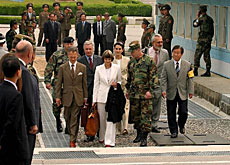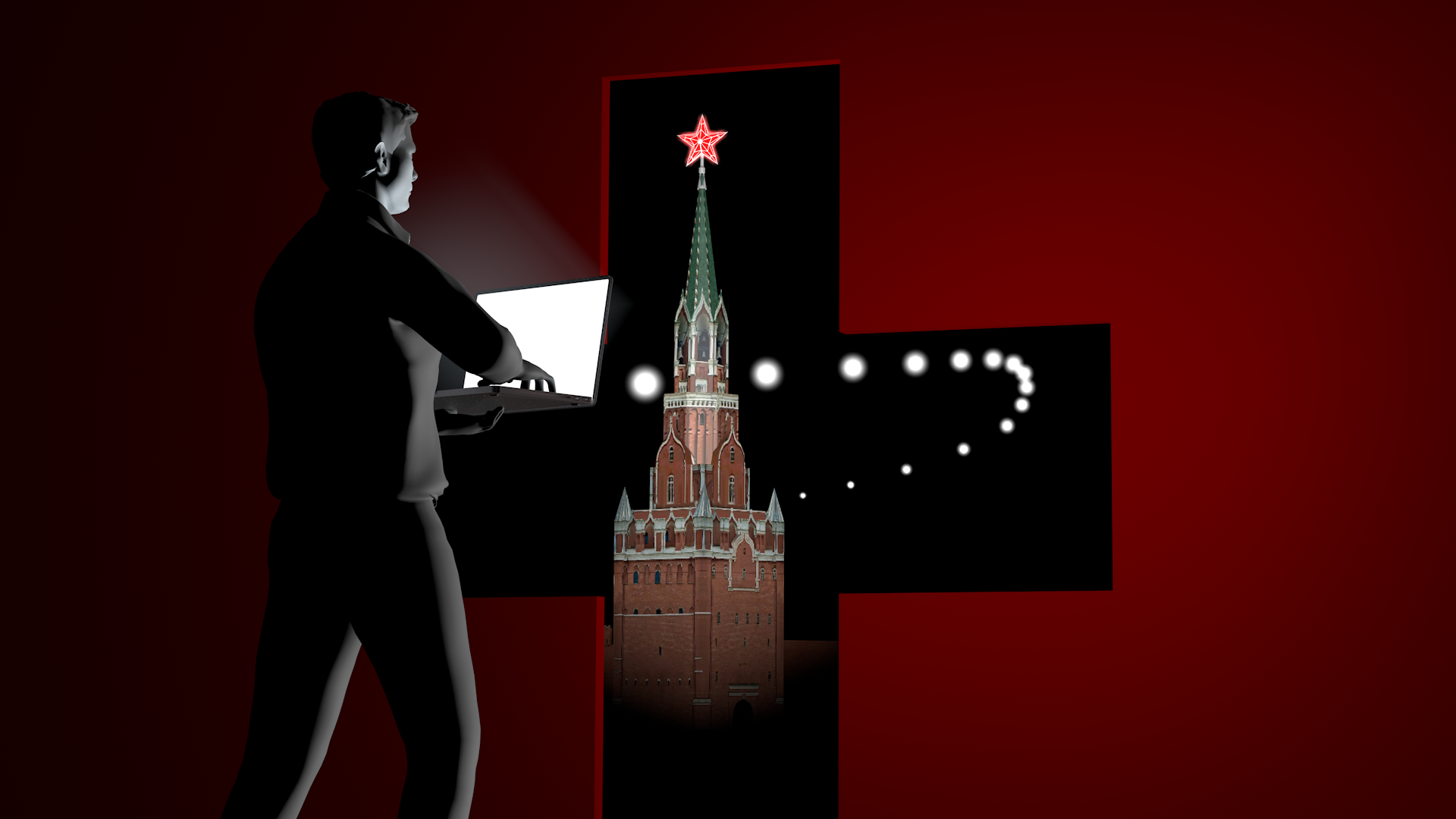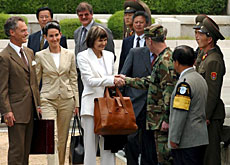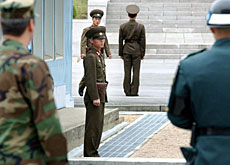Calmy-Rey hopeful for Korean peace

Following her historic crossing of the line separating the two Koreas, Swiss foreign minister Micheline Calmy-Rey told swissinfo of her hopes for peace in the peninsula.
During her visit to the North, Calmy-Rey broached sensitive topics such as the nuclear crisis and human rights – issues she also intends to raise with officials in Seoul.
The foreign minister wanted to show the world that Switzerland is concerned about the deepening tension between North Korea and South Korea and the United States over its nuclear programme.
She told senior government officials that the Swiss were prepared to play the role of facilitator to help resolve the seven-month-old crisis. And she stressed that a resolution of the crisis could only be achieved through dialogue.
As Calmy-Rey prepared to fly to Seoul to meet South Korean officials, swissinfo asked her for her impressions of the landmark four-day visit.
What did North Korean officials say about the nuclear standoff with the United States?
The talks were open. Switzerland is a small country that focuses on international law and peaceful settlements of conflicts to achieve security. I told the North Koreans that they should do the same because that is important for a peaceful solution.
Do you think North Korea is willing to listen to reason with regard to its nuclear brinkmanship?
I have the impression that the talks North Korea held in Beijing recently were a positive sign, and that Pyongyang is waiting for an answer now from the Americans. There is a dialogue and that is important.
Pyongyang has been included in Washington’s “Axis of Evil” list. Do you think the Bush administration will target North Korea, after Iraq?
The North Koreans indicated to me that the offensive against Iraq had made them conclude that the situation is dangerous for them. They are aware that they are in a tight spot.
What concrete results can be achieved in defusing the tensions on the peninsula?
I told the North Koreans that if there was a way for us to help we would be very happy to do so, given the difficult times now. But for us to do so, all parties must agree.
What did North Korea have to say about its often-criticised human rights record?
Of course, we talked about human rights, and I think I can say that they are open to holding talks on the matter. We still have to establish quite how that would be done, but that’s already a step forward. Switzerland has always maintained that dialogue brings more progress than isolation. And in that area, I see it as progress that they were willing to discuss the matter. For the peaceful solution of the North and South Korean conflict, that gives us hope.
How important is Swiss humanitarian assistance to North Korea?
Switzerland was the first country to bring humanitarian aid to North Korea, and the people there told us they appreciate our help greatly. Our help to them has built up their trust, and that trust has allowed us to hold interesting talks, even on political affairs and the nuclear issue.
What were your impressions of the country’s development?
The country is changing, and this is clearly a transitional phase. The local authorities made several requests to us for help in their accounting and finances. We were asked if we could send experts or train North Koreans in Switzerland. And we are prepared to help them, and we will see how that can be done. Development aid can take many forms.
How serious is the food shortage?
I visited towns and drove through the countryside. I saw a lot of ordinary people in the streets. I didn’t see any children with swollen bellies. However, food security has not quite been achieved and speaking to people in the countryside it is clear that production is their main preoccupation.
Is there much freedom of movement in North Korea?
The Swiss aid workers there told us that they can’t move around the way they’d like. And it can be hard to help if one is so restricted. So we spoke to the regime about that and they told us that they would look into it.
Is reunification of the peninsula still a goal of Pyongyang?
The North Koreans told us their goal would be to create a confederation. What I can say is that the fact that I was allowed to cross the demarcation line at Panmunjom is already a sign of openness. North Korea had to make a formal request for me to cross, and that is a sign in itself.
swissinfo, Juliet Linley in Panmunjom
The Swiss foreign minister walked across the world’s most heavily fortified border on Tuesday.
Calmy-Rey was the first foreign government minister to cross the demarcation line dividing the two Koreas.
The crossing was the highlight of her five-day trip to North Korea.
Calmy-Rey is due to hold talks with officials in South Korea.
There has been a Swiss presence at Panmunjom since 1953.
Five Swiss and five Swedish representatives are stationed there as part of the Neutral Nations Supervisory Commission in Korea (NNSC).
Former United States president Jimmy Carter crossed the demarcation line in 1994.
A four-kilometre-wide Demilitarised Zone separates the two countries.

In compliance with the JTI standards
More: SWI swissinfo.ch certified by the Journalism Trust Initiative











You can find an overview of ongoing debates with our journalists here . Please join us!
If you want to start a conversation about a topic raised in this article or want to report factual errors, email us at english@swissinfo.ch.